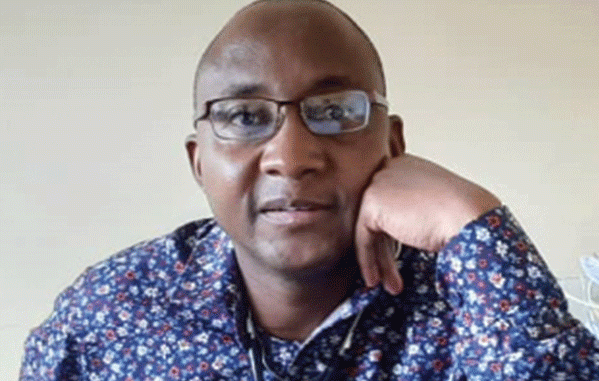
BY Johannes Marisa The world is beginning to quake again because of the monkeypox virus which is now affecting more than 20 countries. The World Health Organisation received the notification of the outbreak on May 13, 2022.
The United Kingdom had its index case on May 6 after its citizen had returned from Nigeria on May 4. Since then, Europe has been witnessing outbreaks of monkeypox with countries like Germany, Italy, Belgium, Portugal, Netherlands, Sweden and France recording cases.
With the United States and Canada having recorded cases, fear is now gripping the globe.
Monkeypox virus has been shown to have two distinct modes of transmission, animal to human and human to human. Animal to human transmission comes from rodents, primates, tree squirrels, dormice and through eating inadequately cooked, contaminated meat.
Human-to-human transmission occurs through close contact with lesions, body fluids, respiratory droplets and contaminated materials like bedding.
The virus enters the body through broken skin, the respiratory tract or mucus membranes like eyes, nose or mouth. Its signs and symptoms are similar to these of the dreaded COVID-19 and include high fever, distinctive bumpy rash, muscle aches, backaches, exhaustion or fatigue and swollen lymph nodes.
Severe infection occurs in those with immune deficiencies like HIV/Aids patients and children who are below the age of 5. However, anyone can contract the monkeypox virus.
Monkeypox virus belongs to the orthopox viruses, the same group that harbours smallpox. Smallpox was eliminated in 1980 through massive vaccination campaigns. The fortunate part about smallpox vaccination was that it simultaneously protected against monkeypox. The termination of smallpox vaccination meant that monkeypox remained without protection hence the sprouting of cases today.
- Chamisa under fire over US$120K donation
- Mavhunga puts DeMbare into Chibuku quarterfinals
- Pension funds bet on Cabora Bassa oilfields
- Councils defy govt fire tender directive
Keep Reading
The monkeypox virus has been in existence in Africa for some time. The first case was found in the Democratic Republic of Congo (then Zaire) in 1970 in a 9-month-old baby and by 1985, 95% of global monkeypox cases were in the DRC alone.
The virus has two strains which are known to date, the first one being the Congolese strain which is more lethal with a case fatality rate of around 10%, the second one being the west African one with a case fatality rate of about 1%. People should know that other African countries have, in the past recorded cases of monkeypox and included here are South Sudan, Nigeria, Gabon, Sierra Leone, Ivory Coast, Cameroon and Benin.
There was not much hullabaloo when monkeypox was predominant in Africa and it is not a secret today that the Democratic Republic of Congo has been having numerous monkeypox cases for the past 3 years.
In 2018, the country recorded 2 850 cases, 3 794 suspected cases in 2019 with 73 deaths and 4 594 cases in 2020 with 171 deaths. No one was bothered much about monkeypox virus because COVID-19 was tormenting the world.
DRC fought and contained the monkeypox virus alone and the World Health Organisation paid little attention to the outbreak at that time.
Africa should not panic much about the monkeypox virus as the infections have now been endemic in many countries especially the DRC.
The prevention of the monkeypox virus is almost similar to COVID-19 and the strategies we used in Africa to contain the COVID-19 virus are the same strategies that are supposed to be used against monkeypox virus.
These include:
- Isolation of infected persons.
- Practising good hygiene including hand-washing with soapy water and sanitisation.
Reduction of contact with infected animals.
- Masking up remains key in avoiding respiratory droplets of which our country has not discarded masks until today. US, UK rushed to discard masking up even though COVID-19 is still striking them heavily.
- Proper disposal of contaminated waste should be done.
- Exercising great care when handling soiled laundry and equipment.
Instead of pressing the panic button, Africa should move fast to upgrade its health delivery system by:
- Increasing health funding to capacitate hospitals and laboratories so that facilities are adequately equipped to deal with the monkeypox virus.
- Increase testing capacity, surveillance and contact tracing thus healthcare workers have to remain motivated and committed to work.
- Strengthening of cross-border collaboration is key as data and information from one country is of paramount importance.
- Working closely with relevant non-governmental organisations like Centre for Disease Control.
In essence, there is no need to impose travel restrictions as the monkeypox virus can be contained better than COVID-19. It is now 51 years since the first case was detected in Africa. Inasmuch as the monkeypox virus is coming as an outbreak today, victory is certain on this one.
Report all suspected cases, seek medical attention as soon as you suspect to have contracted the virus.
- Johannes Marisa is president of the Medical and Dental Private Practitioners Association of Zimbabwe. He writes here in his personal capacity.











